Recent Posts
Prepare Now for the Peak of Atlantic Hurricane Season
9/17/2024 (Permalink)
The peak of the Atlantic hurricane season is September 10th, with most activity occurring between mid-August and mid-October, according to the National Oceanic and Atmospheric Administration.
According to the NOAA, the exact day of September 10th is the day you are mostly likely to find a tropical cyclone somewhere in the Atlantic, statistically speaking. This year, the peak of Hurricane Season coincided with Hurricane Francine in the Gulf of Mexico.
Do not wait to prepare yourself for a hurricane when a storm forms in the Atlantic and stores are filling with shoppers looking for emergency supplies.
There are steps that you can take now to ensure you and your household are more prepared for the peak hurricane season:
- Build a survival kit. You and your household should be prepared to shelter in a secure and safe location for several days after a disaster when roads may be impassable, gas stations and grocery stores closed, power and communications being out. Common items are water—drinking and sanitation, food, medication, first aid kit and hygiene products.
- Make a Family Communication Plan. Choose an out-of-town friend or relative as a point of contact. Make sure children have emergency contacts memorized or saved in a secure place. Determine a safe, familiar place the family can go to reunite.
- Stay Informed. Listen to local officials for the most up-to-date information before, during and after a disaster. Keeping a battery or solar-powered radio to receive disaster notices and updates in your survival kit is key.
2024 Hurricane Season
5/24/2024 (Permalink)
NOAA National Weather Service forecasters are predicting an above-normal hurricane activity this year. The 2024 Hurricane Season spans from June 1st to November 30th. NOAA is forecasting a range of 17-25 total named storms (winds of 39 mph or higher). Out of those, 8-13 are forecast to become hurricanes with winds of 74 mph or higher and that includes 4 to 7 major hurricanes (cat 3, 4, 5).
FEMA in accordance with NOAA is recommending going ahead and preparing because severe weather and emergencies can happen at any moment. Taking a proactive approach today can make a difference in how quickly people can recover tomorrow.
NOAA is taking multiple steps to ensure better communications for the 2024 season.
- NOAA is implementing improvements to its forecast communications, decision support and storm recovery efforts this season.
- They are using new tools for hurricane analysis and forecasting.
- Upgrades to NOAA observing systems that are critical in understanding and forecasting hurricanes.
For more information on the 2024 hurricane season, visit www.noaa.gov.
Smoke Alarm Installation
5/20/2024 (Permalink)
Smoke Alarms
It’s important to install your smoke alarms correctly and make sure they are in working order. Fire research has indicated that with today’s modern furnishing, fires can spread much more rapidly than in the past when more natural materials were used. This is why having enough properly located smoke alarms is so important.
Installing smoke alarms:
- Install smoke alarms inside each bedroom, outside each sleeping area and on every level of the home.
- Smoke alarms should be installed at least 10ft from a cooking appliance to minimize false alarms when cooking.
- Smoke rises. It is important to mount smoke alarms high on walls or ceilings to ensure they are functioning properly.
- Don’t install smoke alarms near windows, doors, or ducts where drafts may interfere with their operation.
- Keep manufacturer’s instructions for reference.
Testing smoke alarms:
- Smoke alarms should be maintained according to manufacturer's instructions.
- Test smoke alarms at least once a month using the test button.
- Smoke alarms with non-replaceable 10-year batteries are designed to remain effective for up to 10 years. If the alarm chirps, it is a warning that the battery is low and needing to be replaced.
- Smoke alarms with disposable batteries should be replaced once a year. If the alarm chirps, it is a warning that the battery is low and needing to be replaced.
Prepare for the Peak of Hurricane Season
8/28/2023 (Permalink)
The peak of the Atlantic hurricane season is September 10th, with most activity occurring between mid-August and mid-October, according to the National Oceanic and Atmospheric Administration. Do not wait to prepare yourself for a hurricane when a storm forms in the Atlantic and stores are filling with shoppers looking for emergency supplies.
There are steps that you can take now to ensure you and your household are more prepared for the peak hurricane season:
- Build a survival kit. You and your household should be prepared to shelter in a secure and safe location for several days after a disaster when roads may be impassable, gas stations and grocery stores closed, power and communications being out. Common items are water—drinking and sanitation, food, medication, first aid kit and hygiene products.
- Make a Family Communication Plan. Choose an out-of-town friend or relative as a point of contact. Make sure children have emergency contacts memorized or saved in a secure place. Determine a safe, familiar place the family can go to reunite.
- Stay Informed. Listen to local officials for the most up-to-date information before, during and after a disaster. Keeping a battery or solar-powered radio to receive disaster notices and updates in your survival kit is key.
NOAA on 2023 Hurricane Season
5/22/2023 (Permalink)
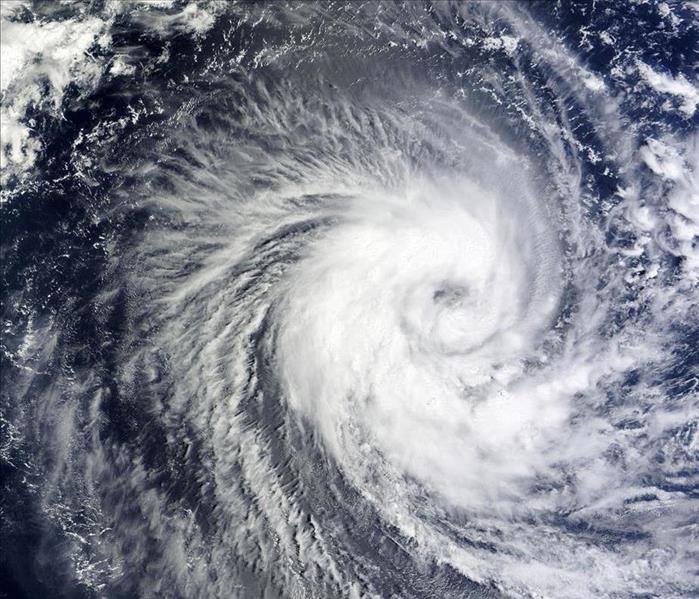 2023 Hurricane season starts June 1st.
2023 Hurricane season starts June 1st.
The National Oceanic and Atmospheric Administration is scheduled to issue its outlook for the 2023 Atlantic Hurricane season. The NOAA will discuss the expected number of storms and climate factors that will influence hurricane development. They will also provide advice on how to prepare for the upcoming hurricane season which officially begins on June 1st. The NOAA will also discuss their readiness for the season showcasing new products and upgrades to enhance forecasting and operations.
Hurricane names for the 2023 season have been released. There are new names in the rotation that will replace Harvey, Irma, Maria, and Nate. Those names will be replaced with Harold, Idalia, Margot, and Nigel.
Don’t forget to tune in on Thursday, May 25 to hear all about the 2023 Atlantic Hurricane Season!
Fire Safety Facts
5/18/2023 (Permalink)
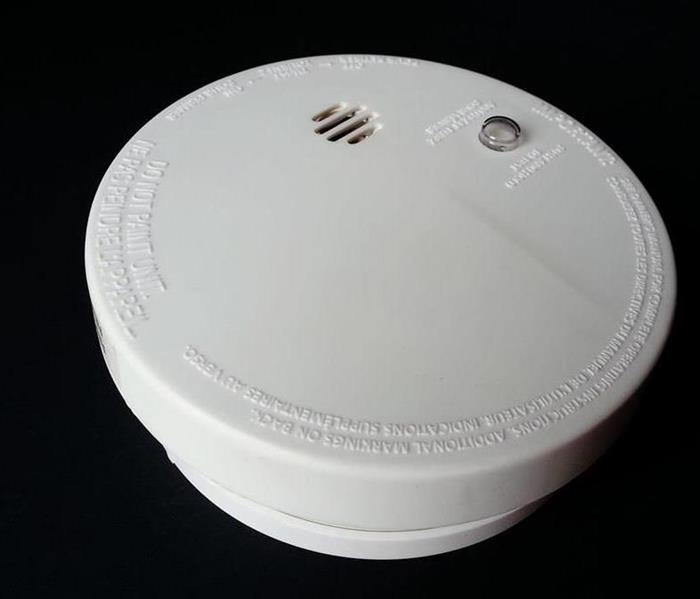 Smoke detectors can help keep you safe in the event of a fire.
Smoke detectors can help keep you safe in the event of a fire.
Fire safety comes in many forms. Here are some facts that can provide some insight into fire safety.
- A closed door may slow the spread of smoke, heat, and fire.
- Smoke alarms should be installed inside every sleeping room, outside of each sleeping area, and on every level. Smoke alarms should be connected so when one sounds, they all sound.
- Roughly, three out of five fire deaths happen in homes with no smoke alarms or no working smoke alarms.
- Fires most often start in the kitchen. Almost 30 percent of fires start in the kitchen because this is primarily where open flames are used.
- Cooking and heating cause the most fires.
If a fire occurs in your home, GET OUT, STAY OUT and CALL FOR HELP. Never go back inside for anything or anyone.
Commercial Cleaning Services
5/18/2023 (Permalink)
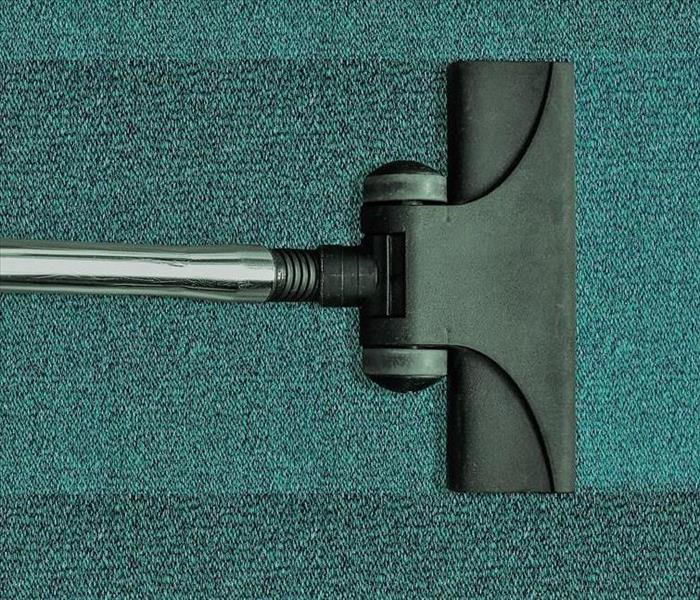 SERVPRO of Clear Lake can help make your workspace clean.
SERVPRO of Clear Lake can help make your workspace clean.
With SERVPRO’s commercial cleaning services, you won’t have to worry about the common wear and tear of your buildings or offices. When grit/grime, moisture, and odor overwhelm a standard janitorial service, call SERVPRO of Clear Lake. You can rely on us to make your workspace the cleanest it’s ever been.
SERVPRO of Clear Lake will get it done right the first time with our:
- Award-Winning Training
- Nearly 50 Years of Experience
- Proprietary Cleaning Products
Specialty Cleaning Services
SERVPRO offers a broad scope of cleaning services - from bloodborne pathogens to mold to fire/water restoration. Our technicians have specialized training and products to effectively clean your business and make it "Like it never even happened." We can do it all:
- Air ducts & HVAC
- Biohazard
- Carpet & Upholstery
- Odor Removal
Sewage - Trauma and Crime Scene
And much more - Call us today at 281-486-4716!
Signs that a Pipe in your House is Leaking
12/6/2022 (Permalink)
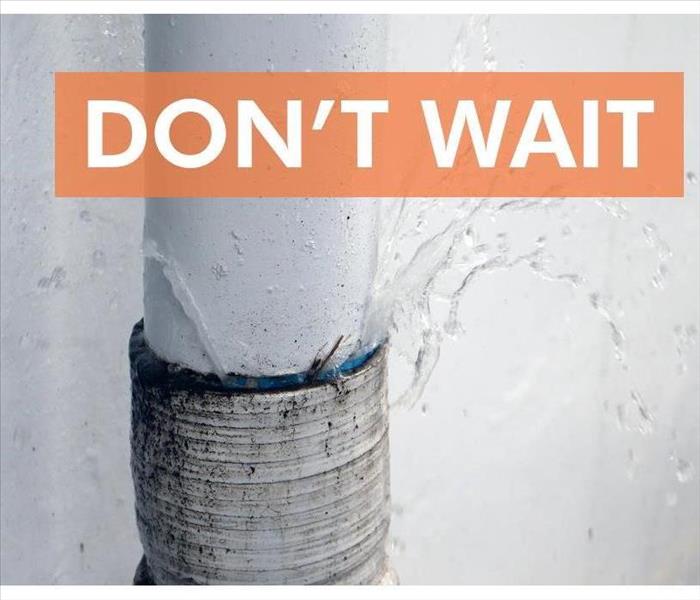 A leaking pipe can cause a variety of problems with your plumbing system.
A leaking pipe can cause a variety of problems with your plumbing system.
Signs that a Pipe in your House is Leaking
In most cases, a leaking pipe won't be something you can notice right away. The water that's coming into your home is probably leaking in invisible areas, so you'll only know there's a problem if there are obvious signs of leakage and flooding. That's why it's important to know the warning signs that a pipe in your house is leaking. Here are some ways to tell if you might have an issue.
1. Low water pressure
A leaking pipe can cause a variety of problems with your plumbing system. One of the most common is low water pressure. If you’ve noticed that your faucet isn’t working as well as it should, it may be time to call in a plumber to check for leaks in your pipes and fixtures.
2. Water stains on the walls and ceilings
Water stains on the walls and ceilings are a good indicator that there's a leak in your home. If you see water stains on the ceiling, check the attic for leaks. If you see water stains on the walls, check underneath them for cracks or other damage that could be causing the leak.
3. Soggy floors
Soggy floors are a definite sign of some kind of leakage. If you notice these signs, it’s important to call a plumber right away. The longer you wait, the more damage will be done to your home and belongings. If you’re not sure whether there is water damage in your house, look at the ceiling and walls for mold growth or discoloration. Mold spores can travel through air ducts, so if you smell mildew in several rooms this may be an indication that there is water damage somewhere in your house.
4. Mold and mildew growth
If you see mold or mildew growth in your home, it's a sign that water damage is occurring. If you see this type of growth in your house, contact a professional immediately.
5. Unpleasant odors
While the smell of mold and mildew may be unpleasant, it's not uncommon to notice an odor in your home or basement. In fact, you should expect your water pipes to have odor — but if you're getting strong smells from them that aren't normal, there might be a problem.
If you're experiencing a strong and strange smell coming from your water pipes, it's time to investigate further. The cause could be as simple as a backed-up drainpipe or toilet overflow, but if the odor persists for longer than it should or seems more intense than what would normally come with those events, then there may be something more serious going on. A leaky pipe can also cause unpleasant odors in other parts of your home: sewage is one example that comes up frequently in conversation about water leaks; decaying organic matter like dead plants or animal waste can also lead to an unpleasant scent emanating from below ground level.
6. Sounds of water running when no one is using it
If you hear water running in your house when no one is using it, then you might have a leaky pipe somewhere. Check faucets and toilets for leaks. You may also want to check the pipes that run through your walls as well as those that connect to appliances such as refrigerators and washing machines (these types of devices often have their own internal problems).
There are many signs that a pipe in your house is leaking, but the most important thing to remember is that it’s crucial to check for leaks before they become big problems. If you suspect a leak, contact a licensed plumber right away so they can come out and thoroughly inspect your home.
How Do You Prevent Water Damage?
11/1/2022 (Permalink)
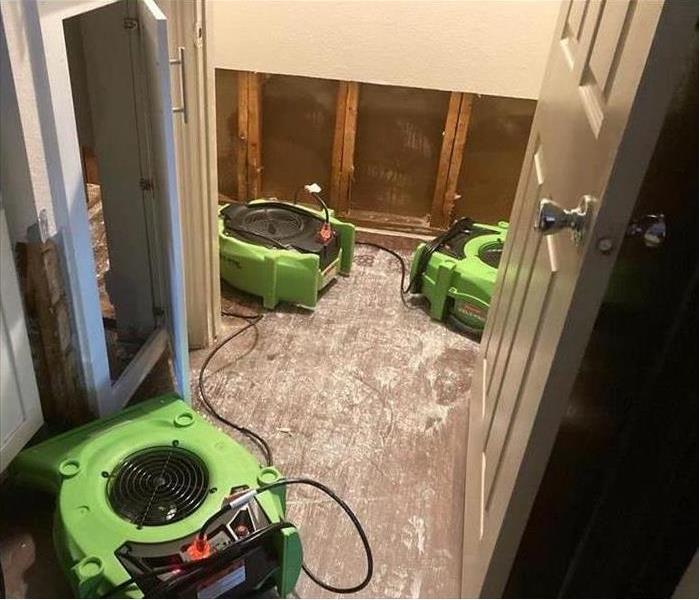 This Clear Lake home sustained significant damage as a result of standing water caused by a pipe burst.
This Clear Lake home sustained significant damage as a result of standing water caused by a pipe burst.
How Do You Prevent Water Damage?
Water damage can occur in your Clear Lake, TX building or home, and it can cause serious problems to the structural elements of your home. One of the most common causes of water damage is a burst pipe, which can be caused by several factors, including burst pipes, drips & leaks, pipe blockages, and other things. If you have a pipe burst in your home or business, it's highly likely that you're going to need to call a professional water restoration company to assess the damage and clean up the mess before it gets too bad. To prevent water damage from happening (and to prevent natural disasters), here are three tips to help keep water out of your home.
If you have any doubts about whether your property has been affected by a burst pipe then it’s best to get in touch with a professional plumber immediately as they will be able to inspect your appliances and repair any issues that may arise before any further damage occurs.
While it's tempting to try and fix the problem yourself, attempting to repair or replace a broken pipe can cause more harm than good (especially if you don't know what you're doing). If your house is experiencing flooding due to plumbing issues, call SERVPRO of Clear Lake at (281) 486-4716. We'll be happy to send someone out over as soon as possible so that we can begin assessing the damage and preventing further damage from occurring.
To prevent water damage from happening, here are three tips to help keep water out of your home.
- Make sure you have a backflow preventer.
- Install a water alarm.
- Check your pipes regularly to make sure they're in good condition.
Make sure you have good drainage systems installed on your property.
Without a proper drainage system in place, water can pool at the lowest point of your home or property. When this happens, it is more likely to seep into walls and floors.
To ensure that you have good drainage systems installed on your property, ask a professional contractor to come out and assess the drainage system. The contractor may recommend installing sump pumps or other types of pumps that can drain water away from your home.
When you are away from home for long periods of time, shut off the main water supply so that if there is a leak in one of your pipes, no damage will occur while you are gone.
Shutting off the main water supply is a crucial step in preventing water damage to your home. Each house has a main water shutoff valve, which is usually located near the meter. If you can't find it, check with your local water company or plumber for help.
To shut off the main supply of water:
- Turn off the main valve that supplies fresh drinking water to your house. This is typically located near your hot water heater. This will prevent any unexpected leaks into this part of your pipes from being swept away by running taps or toilets in other parts of your house that could cause serious damage.
Water damage can be a nightmare to deal with. It is not only time-consuming but expensive as well. So, before you call a professional restoration company to come out and assess your home or business after a burst pipe caused flooding indoors, make sure it's covered by insurance first!
How Do Fire Sprinklers Work During a Fire?
10/13/2022 (Permalink)
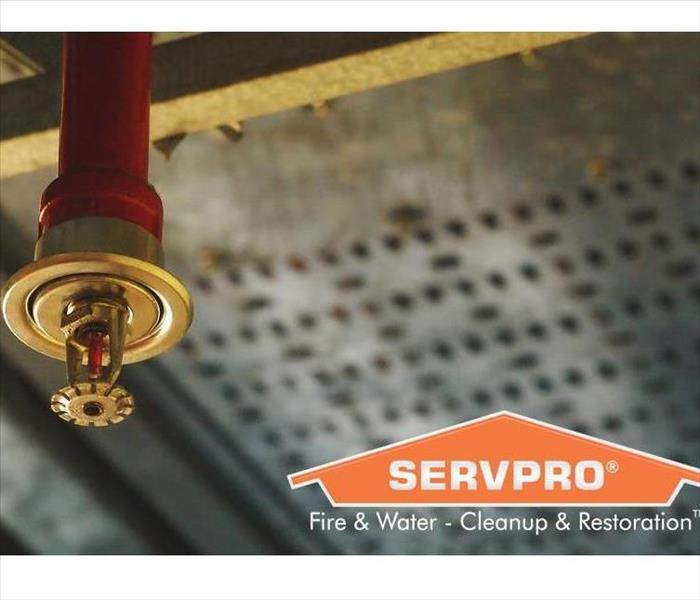 Fire sprinklers are an invaluable tool for fire prevention in commercial buildings.
Fire sprinklers are an invaluable tool for fire prevention in commercial buildings.
How Do Fire Sprinklers Work in the Event of a Fire?
Fire sprinkler systems are the most common fire prevention method in commercial buildings. Sprinklers work by activating when high temperatures or smoke from a fire trigger them to release water on the flames, stopping them from spreading further. If you’re curious about how your building's sprinkler system works and what options are available for commercial fire sprinklers, read on for answers!
How do fire sprinklers work?
Fire sprinklers are designed to be activated by heat, releasing water to extinguish the flames. The process of sprinkler activation is simple: when a fire starts, heat causes the sprinkler’s metal housing to expand. That expansion triggers the fusible link inside the housing, which allows water to flow out of a small orifice at high pressure through an open onto the affected materials. Some sprinklers contain compressed air that helps spray farther than normal; others use a special mechanism called an actuated pressure switch that closes when exposed to heat and opens when cold again—like flipping a light switch off and on again!
What are the options for commercial fire sprinkler systems?
There are four different types of commercial fire sprinkler systems: pre-action, deluge, high-temperature, and dry pipe. Each type is used for a specific purpose, but they all work the same way. All commercial fire sprinkler systems are designed to detect a fire through heat sensing technology that detects fast temperature rises in certain areas of the building. When this happens, water flows out into those areas and puts out any potential flames before they can cause too much damage or injury to people or property within your building.
Can fire sprinklers cause water damage?
Fire sprinkler systems are designed to put out fires, not cause water damage. That said, there may be some instances where water damage does occur due to a water-soaking drywall and other materials. In these cases, you should seek the help of a professional restoration company as soon as possible to determine whether your home has been affected and what needs to happen next.
If you're concerned about the potential damage caused by a fire sprinkler system in your home or business, here's how they work:
Conclusion
Fire sprinklers are an invaluable tool for fire prevention in commercial buildings. They can save lives, property, and time. If you’re looking for a new fire sprinkler system or need one repaired, contact our experts at SERVPRO

 24/7 Emergency Service
24/7 Emergency Service





